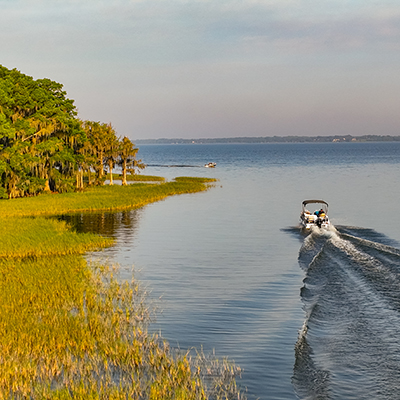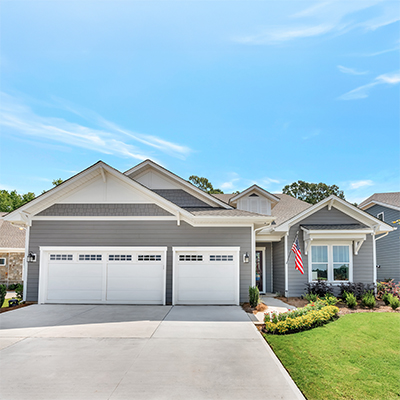Arizona Community’s Water Supply Shut Off – Are There Any Safe Places to Retire?
Category: Best Retirement Towns and States
January 17, 2023 — The search for a safe place to retire is challenging, as the community of Rio Verde Hills just found out. Up until recently, it received its water from neighboring Scottsdale. But due to concerns that it wouldn’t have enough water for its own residents, Scottsdale cut off the water it was supplying to Rio Verde Hills on Dec. 31. Residents there are understandably upset, as they now have to pay for water to be trucked in from increasingly farther away. Not only are water bills escalating fast, but residents are concerned about their ability to keep animals, along with having to reduce all but the most essential water use.
Is any place to retire safe?
The Rio Verde story makes it even clear that almost every area of the country faces serious climate and environmental risks. While Florida residents have plenty to worry about with coastal flooding and hurricanes, water shortages and wildfires are equally dire threats in the American West. The Midwest faces extreme weather like tornadoes, the West has earthquakes, and the Midwest and Northeast have ice and snow storms, not to mention flooding. Almost everywhere is experiencing record high temperatures and weather extremes. If that wasn’t enough, other areas of the country have sinkholes and volcanoes. It seems like nowhere is safe!
Not many safe harbors
The truth is that almost every area of the country is exposed to weather problems and natural disasters – there is no truly safe place and very few ideal regions. A search through any newspaper or weather website can provide plenty of evidence for that – it seems like there is a new climate driven disaster every day in some part of the world.
Is there anywhere that is safe to retire?
Unless you decide to retire on one of the very few places in the world that are generally safe from natural disasters, you have to choose carefully among those that are less prone to them. Fortunately there are some practical steps you can take to minimize the dangers. We hope that our Members will be able to suggest others too.
– Check out the local water supply. Search online for water problems in the area you are considering for retirement. It is not just the West that has problems either, many cities have old pipes (Jackson, MS and Flint, MI) or other problems with a safe water supply.
– Move to one of the States with the history of the fewest natural disasters. Those include much of Washington, Oregon, and upstate New York and Michigan, among others. But even they have problems: wildfires, earthquakes, and blizzards to name a few.
– Get an insurance quote. Insurance companies know where the most unsafe places to live are. Find out how much you would have to pay if you live there – that alone will help you decide.
– Check out building codes and how/when your home was built. Building codes vary by state and city. Typically the newer your home the more advanced techniques that are incorporated in it – like roofs that are tied down, extra bracing in the framing, attachment to the foundation, etc. When your home was built is significant, as is the reputation of the builder (as it very hard for a lay person to assess how it was actually constructed).
– Safer building materials and techniques. There are a number of things you can do to make your home stronger and more resistant to danger. If you live in an area with wildfires, choose concrete roofing tiles and siding. Get hurricane resistant windows or storm shutters – if a window is blown out by debris or wind your house can literally blow up in a hurricane. When buying a new home it is a lot easier to specify these features before it is finished, but retrofitting is always possible too.
– Move to an area with strict development rules. The State of Florida is among many jurisdictions that have eased restrictions on developers in recent years, e.g.; allowing them to build in more dangerous areas, fill in wetlands, and cover natural surfaces with impervious materials. The unexpectedly high flooding in Houston from Hurricane Harvey is a good example of what happens when authorities allow unchecked development. When considering an area to move to, explore what development controls there are to protect you.
– Stay away from coastal and other areas prone to flooding. FEMA has maps that rate the flooding risk just about everywhere in the country. Stay away from problem areas – way too many places are experiencing 100 year floods.
– Get high! High above the ground, that is. Even if the building code specifies a certain height for new construction, we are now seeing bigger and bigger storms. The standard used to be 12? above sea level, now it is higher. Go high if building a home from scratch. When buying an existing home, its height above potential flood levels is one of the most important things of all to consider.
– Check out the area’s history of natural disasters. Fault lines, flooding, forest fires – these are all big problems. It is like marrying a partner with a history – be careful, some things can’t be changed!
For further reading:
Circle Of Blue: Arizona’s Future Water Shock
Worst Places to Retire for Weather (55 comments!)







Comments on "Arizona Community’s Water Supply Shut Off – Are There Any Safe Places to Retire?"
Daryl says:
Here’s one of the articles that fried me about water in Arizona—foreign companies draining American aquifers: “Why are we allowing a foreign company to come into Arizona – which is drought-stricken right now – and have a sweetheart deal [on leases], when we are trying to conserve as much water as we can?”
https://www.cnn.com/2022/11/05/us/arizona-water-foreign-owned-farms-climate/index.html
I’ve read articles about Florida’s water problems of aquifers being drained, too, causing sinkholes, poisoning with saltwater, on top of sea level rise and the gift of hurricanes. Well, so far here in western PA we’re not too wet or too dry, but can’t brag while being slowly fracked and now cracked to death. So you pays your money and you takes your choice.
JoannC says:
If I lived in Arizona, this would fry me too. Until enough Arizonans are sufficiently concerned about this practice to elect legislators who will enact laws to limit foreign investors who indirectly drain their water supply, this will continue. I feel similarly about almond growers in California who export product abroad (when I lived overseas I found a 20 pound bag of California almonds at my local Auchan for less than I would pay here) and about Nestle, which takes water from California streams and bottles and sells it elsewhere. When I mention this to people they say "oh, but the tax revenues California gets from these sales." Seriously, I'd rather have my water so that I don't have to worry about conserving every drop that comes out of the tap. I also know enough about tax planning to know there are clever ways to divert the revenue to other tax jurisdictions.
ksw says:
I live in Phoenix metro where water usage is lower than it was in the 1950s due to conservation efforts and a shift away from flood irrigation for agriculture to typical residential use. There is a lot of drama about water availability. If you live in the metro areas with city services, you have no problems and water costs are actually reasonable. The community of Rio Verde has 500-700 properties which were sold without city water. Real estate listings show "hauled water" in the facts. Hauled water and shared well properties sell at significant discount to similar properties with city water. Take a look at your utility bill each month. You pay a sewer and a water charge. These properties never paid an impact fee for development which would have funded hooking up to city services. These properties can search out other water haulers in the area and pay a market rate or drill an expensive well. Scottsdale sent out a rebuttal to Rio Verde and it will be interesting to see how this plays out in the courts. There are many water companies in the metro including for profit companies like Epcor. Epcor would love to have their existing customers fund their expansion beyond the Valley and have seen pushback by communities like Town of Paradise Valley which thinks new developers and communities on the outskirts need to fund their own utility services. Developers have played games by buying up small parcels and getting approval for development and then combining them into larger projects which wouldn't have been approved since they require 100 year water studies. Every prospective homeowner needs to read the documents before buying a property.
Bill says:
The article should be titled "Are there any safe places to live"! As a safe place to live prior to retirement is perhaps even more important! I was employed in the NW, which is one of the safer areas to retire, thus I was able to experience living there prior to retirement. My 1st hand experience of the NW's environmental risks reinforced my decision where to retire within the NW. Case in point, though it is beautiful to live amongst the magnificent old growth trees, one soon learns such areas can be at risk of forest fires! Some areas in the NW can also be prone to flooding, thus my earlier experience taught me its best to live on slightly elevated terrain (>200 ft above sea level) since rivers can be prone to overflow, and low-lying terrain can be vulnerable to rain-water accumulation and flooding!